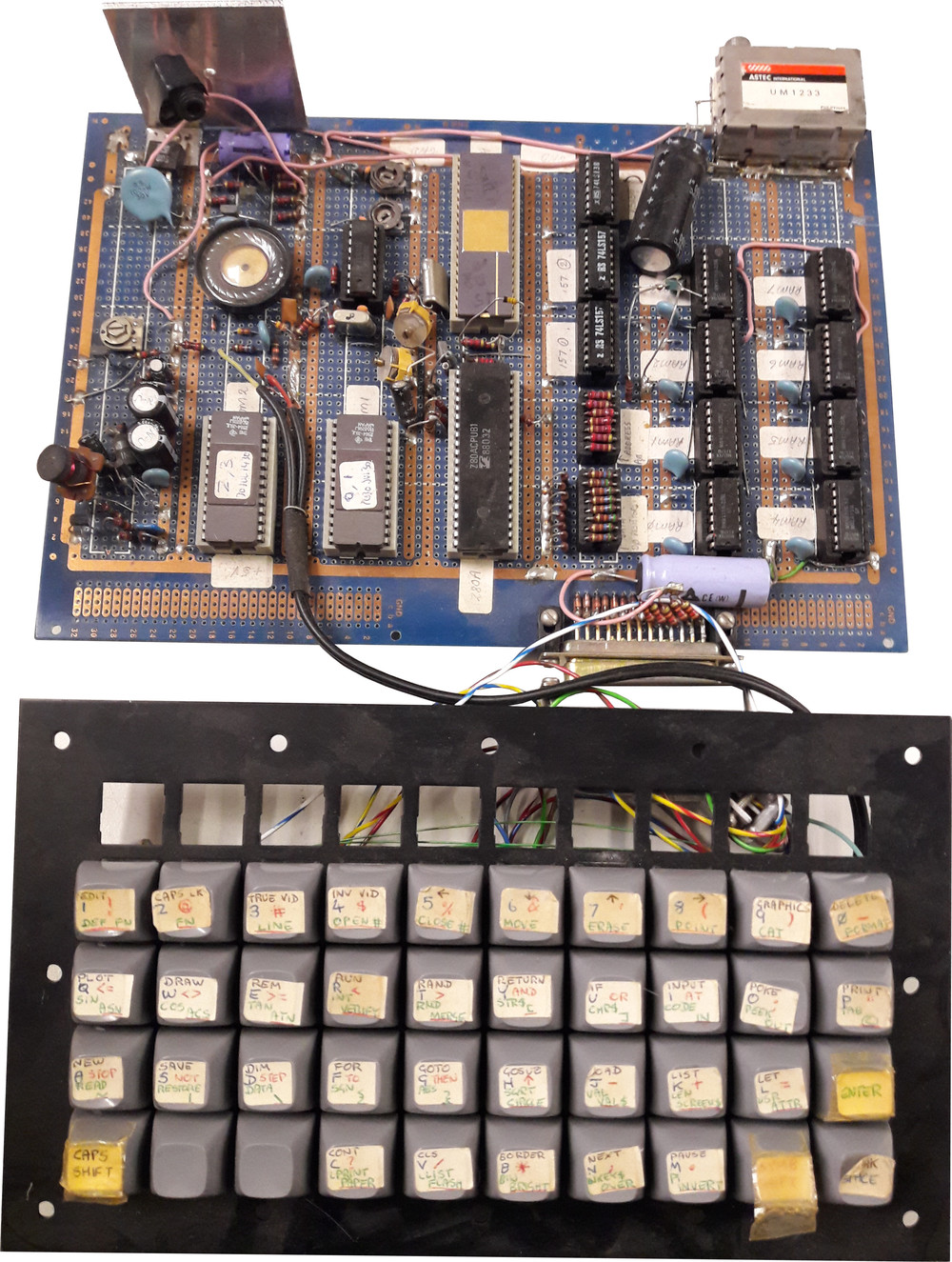

- #In deep sinclair zx spectrum full#
- #In deep sinclair zx spectrum series#
- #In deep sinclair zx spectrum tv#
Architecturally, it was a really simple machine for a programmer – it was just a load of Ram and a processor and the screen itself was just dealt with as part of the ram. You could get most of the way to having a game running without knowing that much. "We realised that machines like the C64 had a lot of clever hardware they did a lot of the hard things – like scrolling and sprites – for you. "When we started at the development studio Binary Designs we noticed that, actually, a lot of the C64 programmers weren't that good," says Pickford, now running digital publisher Zee-3, responsible for the Bafta award-nominated puzzler Magnetic Billiards. The Commodore 64 was more powerful and capable – its multi-chip architecture had been designed to move coloured sprites around the screen as quickly as possible – but it also did some of the work for the coders. Ironically, there were strengths too in the technical limitations of the hardware. There was nothing frightening about the Spectrum!" What the Spectrum did was gave a friendly, fairly simple image to computing. "Some people were actually worried they were going to take over the world, thanks to movies like WarGames, other people worried that computers were going to steal their jobs.
#In deep sinclair zx spectrum series#
"Computers were quite scary at the time," remembers Philip Oliver, co-founder of Blitz Games Studios and one half of the Oliver twins, who created the legendary Dizzy series of games on the Spectrum.
#In deep sinclair zx spectrum tv#
There was also a fundamental difference in philosophy – while his competitors were still producing hardware with serious computing interests in mind, Sinclair was targeting the mass market he saw the wider consumer appeal of computers, not just as serious workhorses for home accounting, but as gadgets that could be as ubiquitous and easy to use as the TV or pocket calculator. It was the only way a family like ours could have owned a computer." "We must have saved up £80, and our parents were just about able to put the rest in. £175 was way more than what mum and dad would have been able to afford on a Christmas present, but we wanted it all year. We put every spare bit of pocket money we had into it.
#In deep sinclair zx spectrum full#
"We spent a full year with this massive jar in the house labelled 'Spectrum savings fund'. "The key thing was price for us," says Ste Pickford, who together with his brother John, started out writing computer games in the earlier eighties. So while the BBC Micro started at £235 for the Model A option and the C64 hit the shelves at around £350, the Spectrum launched at just £125 for the 16k version or £175 for the mighty 48k.Īt a time of deep recession, with unemployment at 3 million in the UK, this was a vital factor – especially as a lot of the interest in home computers was coming, not from businessmen who wanted to do spreadsheets at home, but from kids, excited by the possibility of writing and playing cool arcade games in their own living rooms. The computer's rubber keys, for example, were created from a single sheet, with a metal overlay to separate them – much less expensive than producing a conventional keyboard. Using cheap components and a minimalistic approach to design, he was able to manufacture machines at a lower cost than rivals such as Acorn, Apple and Tandy.

Since the launch of the ZX80 computer two years earlier, restless British inventor Clive Sinclair had been interested in computing for the masses.


 0 kommentar(er)
0 kommentar(er)
